
Blog

Why Is My Baby So Mucousy (But Not Sick)? Understanding Snuffly Babies, Reflux and Underlying Causes
Many babies sound snuffly or “chesty” but are not actually sick with a cold, and often there are several overlapping reasons for this.
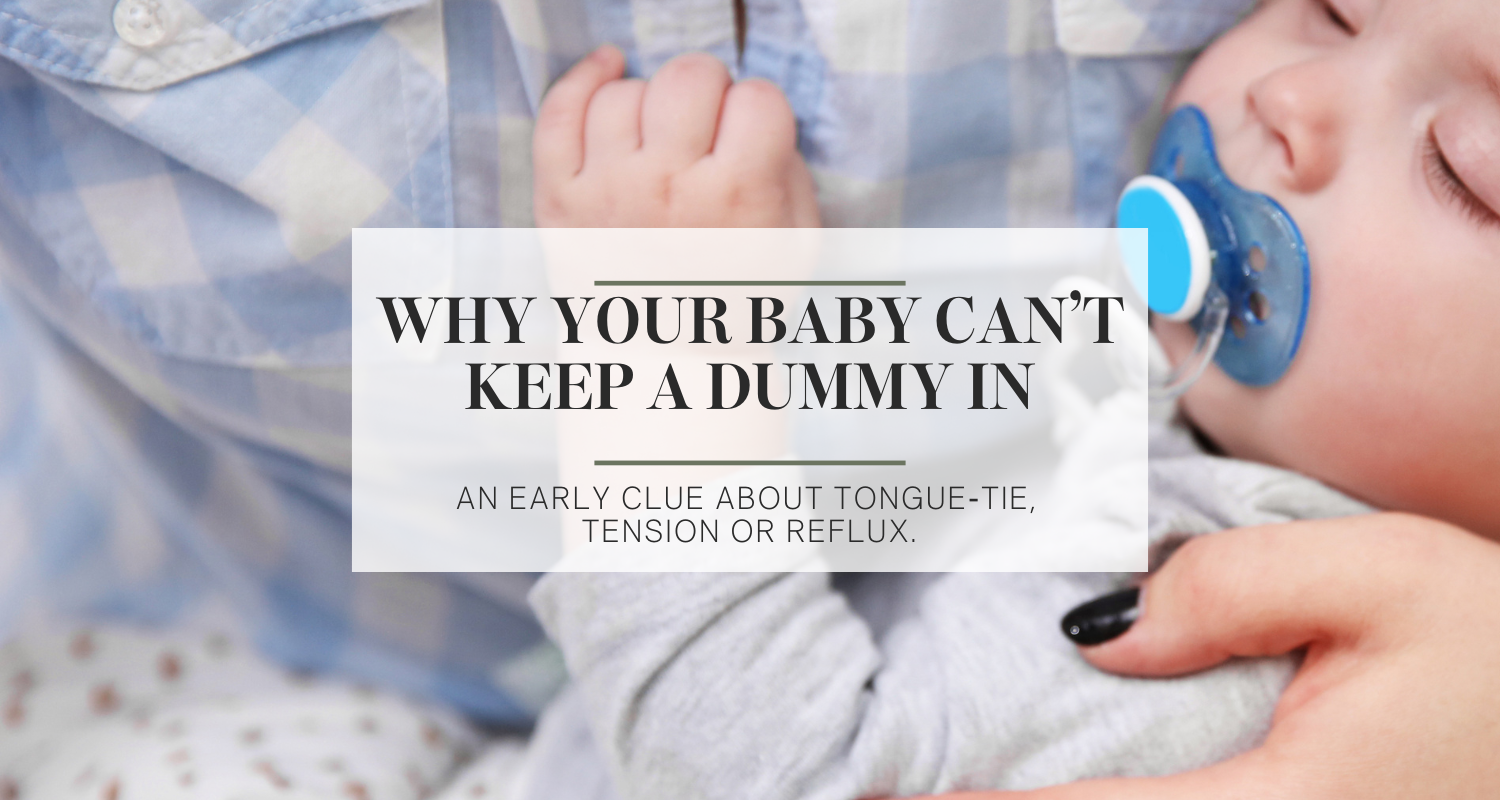
Why your baby can’t keep a dummy in: an early clue about tongue‑tie, tension or reflux.
The sucking reflex develops in late pregnancy (around 32–36 weeks), so term babies usually arrive with a basic suck in place, while late preterm babies often have a weaker or less coordinated suck at first.
In the first months, sucking is largely reflexive and then gradually becomes more voluntary between about 2–4 months, so “dropping” the dummy is very common while baby is still learning to organise tongue, lips and jaw together. If a baby is otherwise feeding and growing well, frequently losing the dummy in the first 8–12 weeks can be within normal developmental variation, especially when tired, overstimulated or premature.
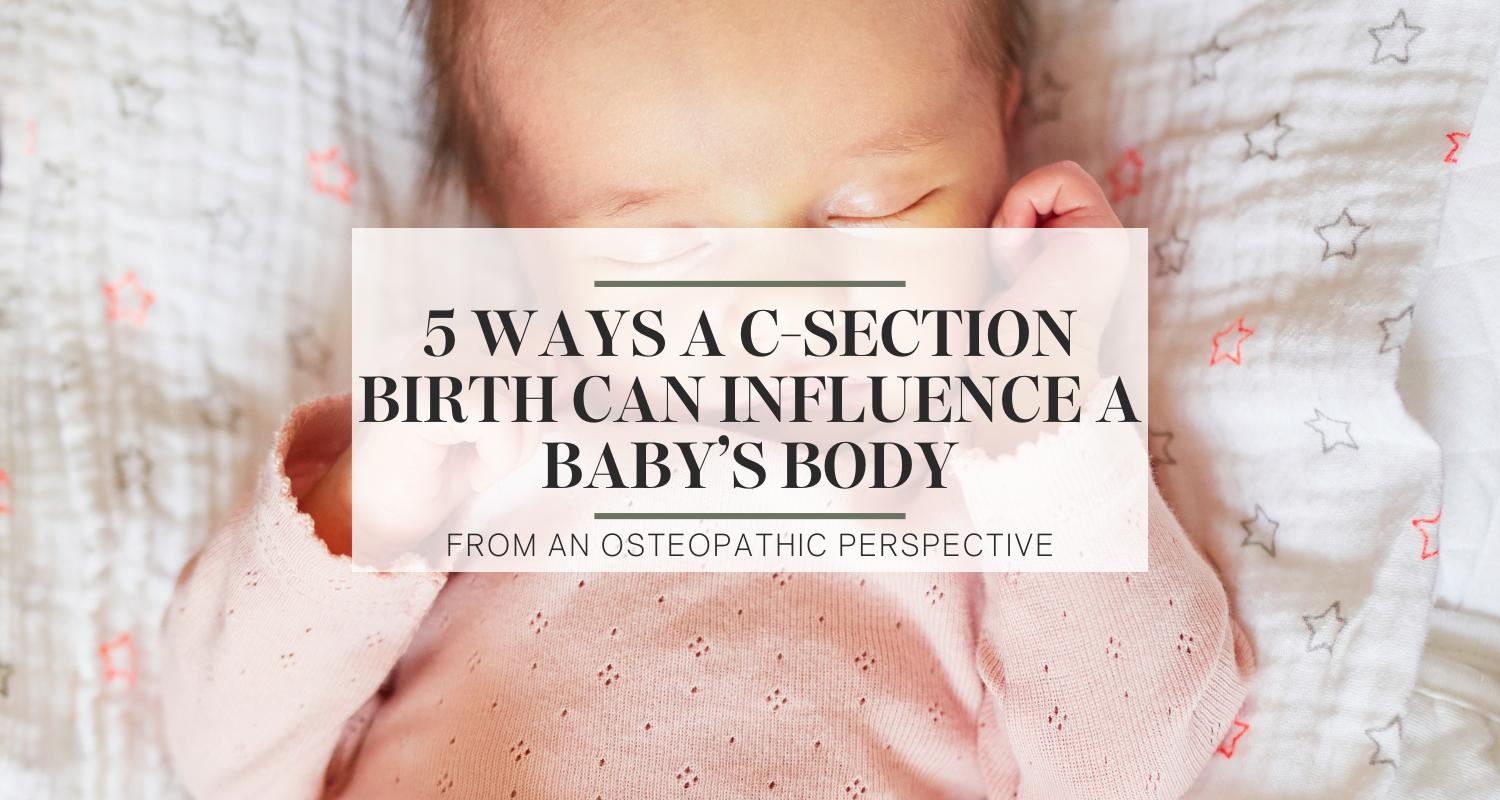
5 Ways a C-Section Birth Can Influence a Baby’s Body (from an osteopathic perspective)
Every birth story is unique, and for many families, a C-section is the way their baby entered the world. For some families this was a planned C-section and for others it may have been an emergency procedure. What most families don’t know is that a C-section shapes the way a baby experiences those first moments, physically, physiologically, and sometimes emotionally.

From Birth Trauma to Being Heard: Cranial Osteopathy and Your Baby’s Birth Story
Every baby arrives with their own story, expressed through their movement, breath and the subtle language of their body. In those first days after birth, many babies are still finding their way. They may be unsettled, struggling with feeding or simply needing to be heard. Cranial osteopathy offers a gentle way to listen to these stories and support a baby’s natural ability to heal, regulate and connect.

The Hyperactive Gag Reflex in Infants, Toddlers and Children: What you can do to help
Many parents worry when their baby gags easily during feeding, when trying new textures, or even when brushing teeth. While the gag reflex is an important safety mechanism, helping prevent choking, an overly sensitive one can create ongoing feeding and developmental challenges.

Babies with ‘Clicky’ Joints: When to Worry and When It’s Normal
Frequent clicking or popping of your baby’s joints is a really common concern from parents. The hips are the most common area, but clicks can also be heard in the shoulders, knees and ankles. This can cause concern about hip dysplasia, long term joint health or whether the child will be hypermobile later in life. It can be reassuring to know that most of the time clicks are part of normal development. Here’s why:

Low tone in babies: what it really means (and why it’s more common than you think).
Babies with low muscle tone, also known as hypotonia, often appear “floppy,” with soft, relaxed arms and legs that make movement and posture more challenging. Hypotonia isn’t a diagnosis in itself; it’s a symptom of an underlying condition or developmental stage.

Shoulder and Arm Strain in Babies: What to Look For and How to Help
When a baby experiences strain in their shoulder or arm, whether from their position in the womb or the birth process, it can affect their comfort, feeding and early movement. Understanding the signs and knowing how to support your baby can help them regain natural, pain free movement.

Infant Reflux Medications: What You Need to Know
When your baby is struggling with reflux, it’s completely natural to wonder if medications could help. But before going down that path, let’s take a closer look at the most commonly prescribed medications for infant reflux and whether they’re actually effective.

Top 10 Benefits of Babywearing
If you have a very unsettled newborn, you may feel like you are doing all the right things to calm your baby, but nothing seem to be helping. If your baby is inconsolable, difficult to settle and has feeding and sleeping issues most of the time, it is important to address any underlying issues.
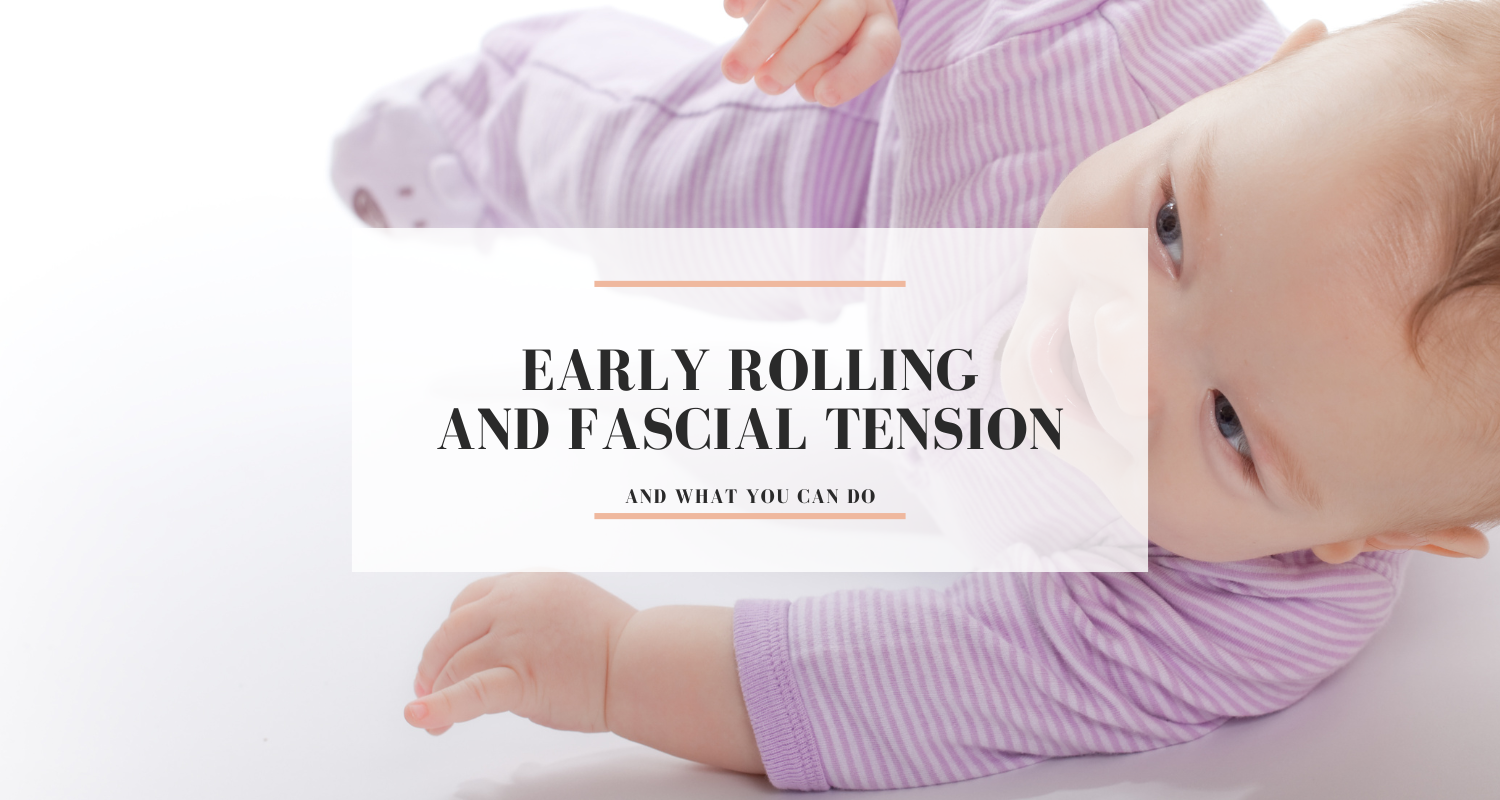
Early Rolling And Fascial Tension
Is your baby rolling early? Did you know that your baby’s milestones can be influenced by increased fascial tension, infant reflux and oral restrictions?
Babies typically begin rolling over from back to tummy and tummy to back between 4-6 months. However, early rolling (before 4 months) can sometimes be a sign of increased fascial tension.
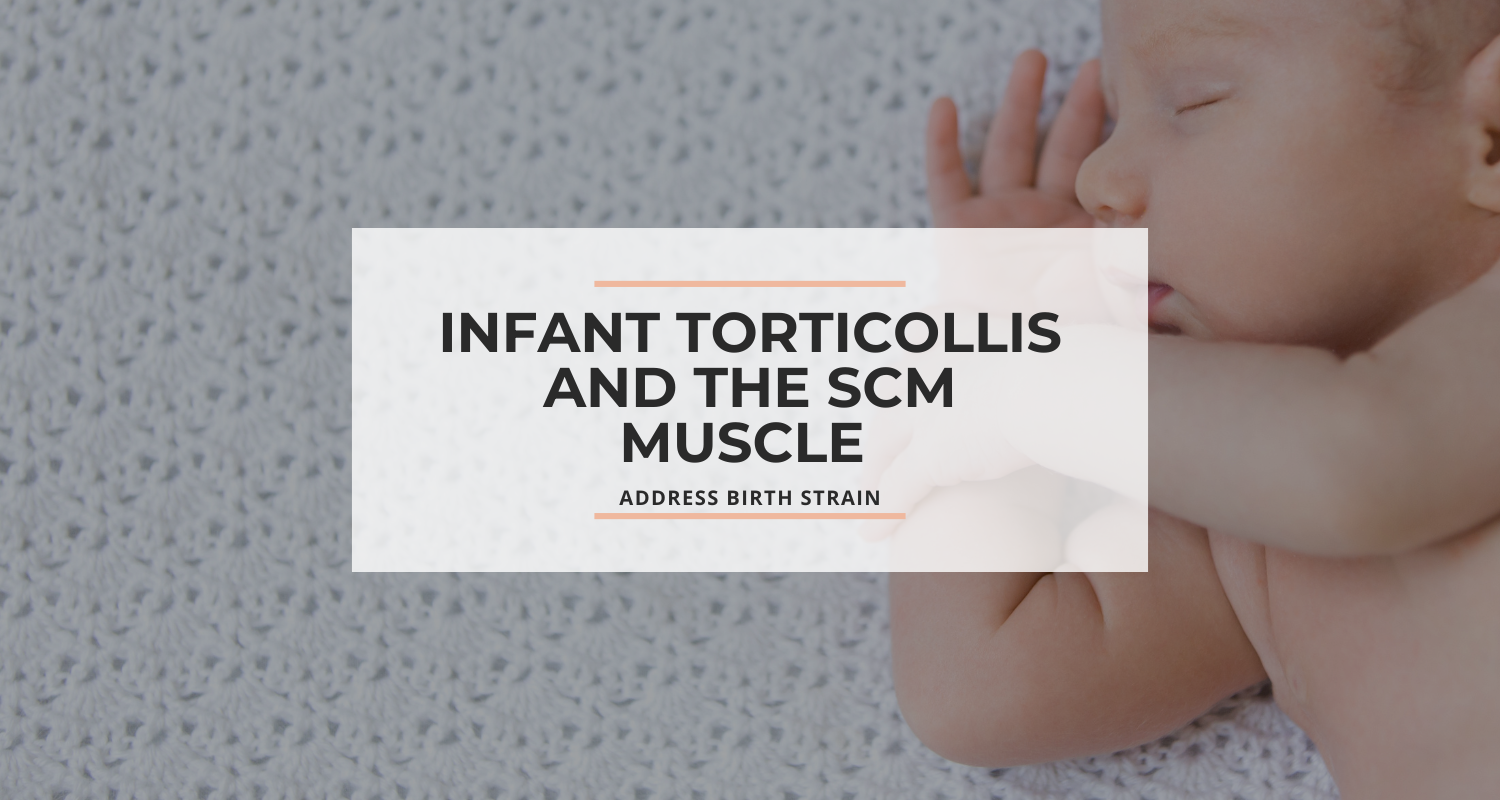
Torticollis and the Sternocleidomastoid muscle
Does your baby tilt their head to one side?
If your baby has been diagnosed with congenital torticollis, you may have noticed them tilting their head to one side or preferring to rotate their head in one direction. This restriction may affect their ability to latch and feed, so it is crucial to treat torticollis early.

What does baby’s lip blister mean?
Does your baby have a blister in the middle of their top lip? Or their lower lip?
The key to successful breastfeeding lies in the movement of your baby's tongue.

What you need to know about infant torticollis
Does your baby lie with their head positioned to one side or is unable to feed from both sides equally?
The word torticollis is derived from the Latin, "tortus" meaning twisted and "collum" meaning neck. Torticollis is usually related to tightened muscles on one side of the neck.

Understanding jaw strain in infants: A guide for parents
One of the many things I consider when assessing an unsettled newborn is the possibility of jaw strain. Your baby may have experienced birth strain from the forceful pressures during the birth process, or even the position they were confined to in the womb. Another cause could be irritation or impingement of the nerve supply to their temporomandibular joint (TMJ). Yes, that's the joint that helps them open up wide to feed.

A Parent’s Guide To Nurture Nasal Breathing From Infancy
Is your little one's mouth hanging open during sleep or rest? It might seem like a harmless habit, but habitual mouth breathing in children can have a lasting impact on their face and jaw development. Paying attention to subtle signs like lips apart and the tongue resting low in the mouth can make a significant difference in promoting optimal facial and jaw muscle development early on.

What You Need To Know About Oral Restrictions (Tongue-Tie)
Tethered oral restrictions (TOTS) include anterior tongue tie, posterior tongue tie (submucosal), lip tie (labial), and buccal (cheek ties). Frenums, identified as thin lines between gums and lips (labial) or the floor of the mouth and the base of the tongue (lingual frenum), can become tight or restricted, impeding normal oral tissue function.

How To Do Tummy Time
Tummy time involves placing your baby on their stomach while they are awake. It’s important for your baby because it helps build strength through the upper body, shoulders and neck. It also helps your baby develop head control.
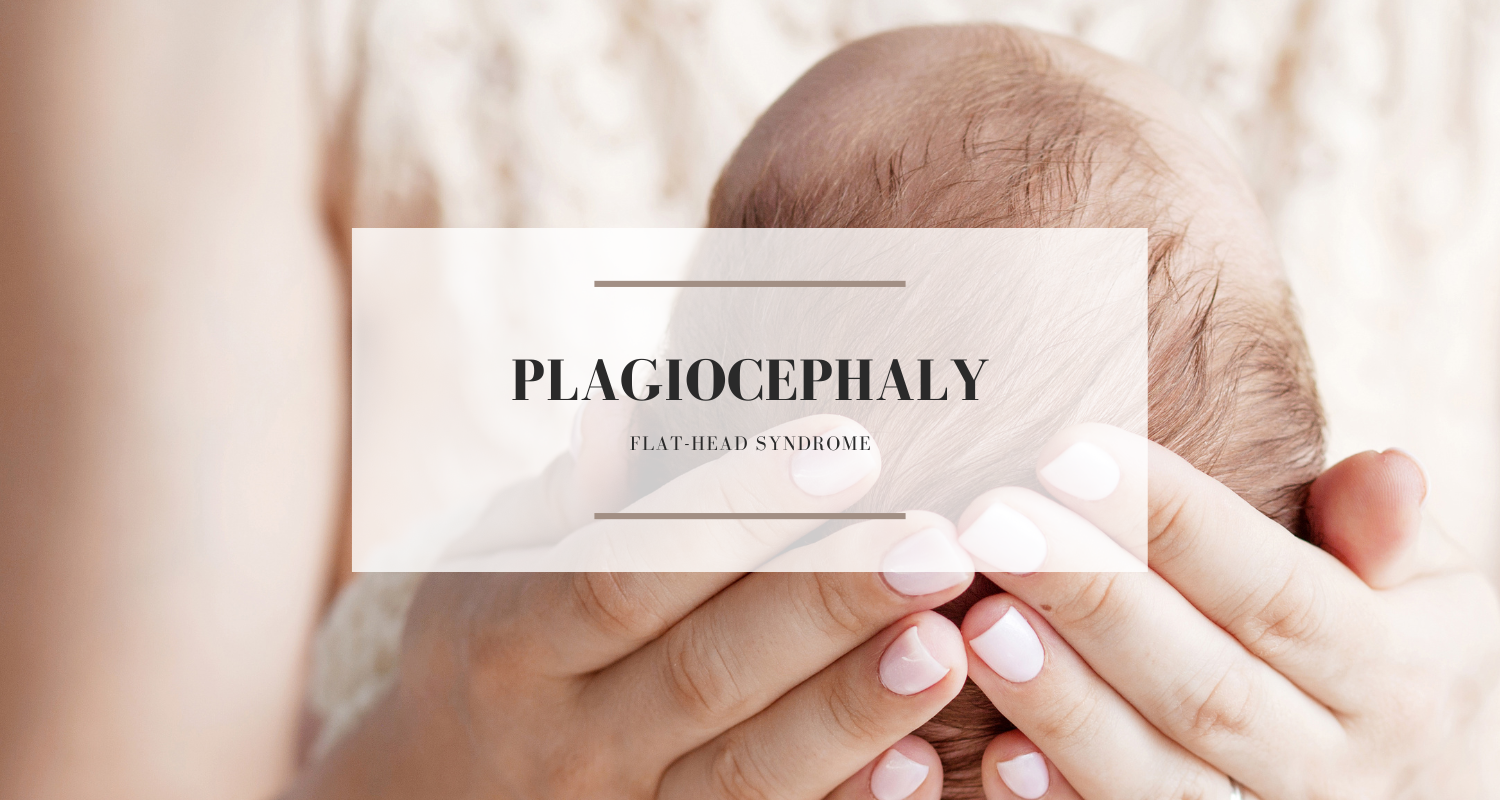
Plagiocephaly
When a baby is born with an asymmetrical head it is called plagiocephaly, from the Greek “plagios” meaning oblique and “kephale” meaning head. A true plagiocephalic head will resemble a parallelogram when viewed from above.